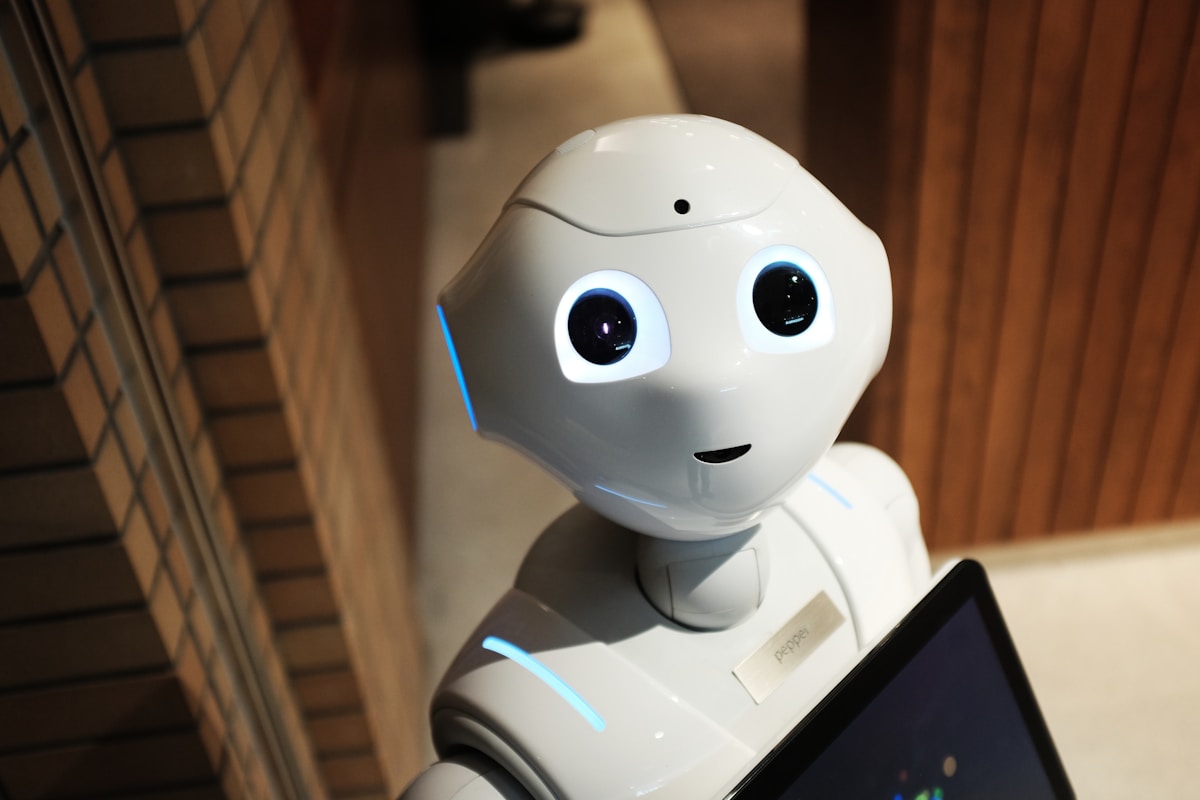Artificial intelligence and automation are no longer distant concepts—they're transforming European workplaces at an unprecedented pace. From manufacturing floors in Germany to financial services in London, AI is reshaping how we work, what skills we need, and which jobs will thrive in the coming decade.
The Current State: AI Adoption Across Europe
According to recent EU Commission data, 42% of European businesses have integrated at least one AI application into their operations in 2025, up from just 14% in 2022. This rapid adoption is particularly pronounced in:
- Financial Services: 78% adoption rate, primarily in fraud detection, risk assessment, and customer service
- Manufacturing: 65% adoption, focusing on predictive maintenance and quality control
- Healthcare: 58% adoption, particularly in diagnostic imaging and patient management
- Retail: 51% adoption, mainly for inventory optimization and personalized marketing
Impact Snapshot
23M
Jobs to be transformed by AI by 2030
€2.1T
Expected boost to EU economy
94%
of workers will need reskilling
Jobs Being Transformed, Not Eliminated
Contrary to dystopian predictions, AI isn't simply eliminating jobs—it's fundamentally changing them. The European Labour Authority's latest study reveals a more nuanced picture:
Augmentation Over Replacement: In 76% of cases, AI tools augment human capabilities rather than replace them entirely. Radiologists now use AI to pre-screen images, allowing them to focus on complex cases. Customer service representatives handle escalated issues while chatbots manage routine inquiries.
New Hybrid Roles: We're seeing emergence of entirely new positions like "AI Trainers," "Machine Learning Ops Specialists," and "Ethical AI Consultants"—roles that didn't exist five years ago but are now in high demand across Europe.
Industries Leading the Transformation
Manufacturing & Industry 4.0
German and Dutch manufacturers are at the forefront of "Industry 4.0"—the integration of AI, IoT, and robotics. BMW's Munich plant now uses AI-powered quality control systems that detect defects invisible to the human eye, while Siemens employs predictive maintenance algorithms that reduce downtime by 30%.
Workers in these facilities aren't being replaced—they're being upskilled to manage, program, and work alongside these intelligent systems. The average manufacturing worker in Germany now requires 40% more technical training than in 2020.
Financial Services & Fintech
London, Amsterdam, and Frankfurt financial centers have deployed AI extensively in trading, risk management, and compliance. Algorithmic trading now accounts for 65% of all EU stock market transactions, while AI-powered fraud detection systems process millions of transactions daily.
Financial analysts are shifting from data crunching to strategic interpretation. Junior analyst roles have decreased by 18%, but demand for "quantitative strategists" and "AI risk managers" has surged by 156%.
Healthcare & Medical Services
AI diagnostic tools in Scandinavian hospitals achieve 94% accuracy in detecting certain cancers, matching or exceeding human performance. However, these tools don't replace doctors—they enable earlier detection and allow physicians to spend more time on patient care and complex decision-making.
Case Study: Netherlands Healthcare AI Initiative
Amsterdam UMC implemented an AI triage system in their emergency department, reducing wait times by 35% and improving patient outcomes. The system doesn't replace nurses—it assists them in prioritizing cases based on severity.
Result: Emergency department nurses report higher job satisfaction (up 28%) and reduced burnout, while the hospital served 23% more patients without increasing staff.
The Skills Gap Challenge
Europe faces a critical skills gap. The European Skills Agenda estimates that 94% of workers will need reskilling or upskilling by 2030 to remain competitive in an AI-integrated economy.
Most In-Demand Skills:
- AI/ML programming and model development
- Data analysis and interpretation
- Human-AI collaboration and workflow design
- Ethical AI and governance
- Critical thinking and complex problem-solving
Progressive companies like SAP, Unilever, and Siemens have launched comprehensive reskilling programs, investing €500M+ collectively in employee training. Germany's "National Skills Strategy" allocates €5B through 2027 for workforce transformation.
Regional Differences Across Europe
AI adoption isn't uniform across the continent:
Nordic Countries: Leading in ethical AI implementation, focusing on transparency and worker protection. Sweden's "AI for Good" initiative ensures workers participate in AI integration decisions.
Germany & Netherlands: Industrial AI leaders, particularly in manufacturing and logistics. Strong union involvement ensures worker rights during automation transitions.
UK & Ireland: Fintech and professional services AI hotspots, with London maintaining its edge in financial AI applications despite Brexit.
Southern Europe: Playing catch-up but showing rapid growth, particularly in tourism tech and agricultural AI in Spain and Italy.
The Human Element: What AI Can't Replace
While AI excels at pattern recognition and data processing, uniquely human skills remain irreplaceable:
- Emotional Intelligence: Understanding nuanced human emotions and responding appropriately
- Creative Problem-Solving: Thinking outside established patterns to solve novel challenges
- Ethical Judgment: Making complex decisions involving values and moral considerations
- Leadership & Motivation: Inspiring teams and driving organizational culture
- Adaptive Learning: Quickly learning and applying knowledge in entirely new contexts
Preparing for the AI-Integrated Future
For Workers:
- Embrace continuous learning—consider AI/ML courses even if not in tech
- Develop complementary skills that work alongside AI
- Focus on uniquely human capabilities: creativity, empathy, strategic thinking
- Stay informed about AI developments in your industry
For Employers:
- Invest in reskilling programs before automating
- Involve workers in AI integration planning
- Focus on augmentation rather than replacement
- Establish clear ethical AI guidelines
Conclusion: An Opportunity, Not a Threat
The AI transformation of European workforces is neither dystopian nor utopian—it's a complex evolution requiring active management and adaptation. Countries and companies that invest in education, prioritize worker welfare, and thoughtfully integrate AI will thrive.
The future belongs to those who can effectively collaborate with AI, leveraging its analytical power while bringing uniquely human creativity, empathy, and judgment. Europe's strong social protections and emphasis on ethical technology position it well to lead in this new era of work.
